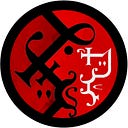The pillories of the Angelic Unison
The Angelist faith sees mercy as one of the highest values and guiding principles: to err is human, and to forgive is divine. There are no prisons in the Angelic Unison, as there are no executions nor tortures. But the guilty must still atone, and the people want to taste justice.
In the Angelic Unison, the most common form of punishment is shame. If you are found guilty of some non-violent crime (disorderly conduct, fraud, petty theft) you would be tied to the pillory for everyone to see. The more serious the offense, the longer and more uncomfortable would be the tying. The citizens are encouraged to shout abuses and insults at you and on occasion throw stuff like eggs and rotten vegetables. This is paired with a struggle session where you admit to your wrongdoings and oath to never offend again. Before being released the “punisher” (sort of a “nonlethal executioner”) will carve a symbol on your arm with a knife. The symbol will tell people what was your crime, and it’s not meant to be a deep cut: the scar should heal and disappear like the crime should be eventually forgiven and forgotten.
The pillory has become a fixed feature in the Angelic trials due to popular acclaim: it’s a rite that bonds the community around common values and releases pent frustration and rancor. Other forms of public humiliation can be used, like making the criminal wear embarrassing clothes, hats, or masks (where you can still see the face beneath) while working some demeaning job (shoveling manure or cleaning latrines for example). If the guilty are not caught there will be “defaming portraits” of them hanging on the walls: an artist will draw the offender using descriptions from people who know him. The drawing will work both as a wanted poster and a form of public humiliation since the artist has free reins to depict him with an animal body, naked and abused, covered in dirty or whatever insulting scenarios they come up with.
When physical violence is involved, the wrongdoer will be sent somewhere to “atone”, “make penitence”, “think about their mistakes” or any other euphemism for detained. There are specific institutions that host the criminals, some are like convents or abbey, others are big as hamlets or villages. Besides being confined in the area, the felon undergoes a series of mundane and magical forms of brainwashing and mind control. The more egregious the crime, the deeper the mental manipulation will be: enemies of the state and serial murderers can have their personalities completely rewritten. Such powerful spells are held up by monk-warden (who, quite often, were brutal criminals before being “corrected”).
In the Emuna province, these “rehabilitation settlements” are built on floating islands. While not particularly fertile on average, many islands can sustain some vegetable gardens and a couple of orchards, enough for a small community to live off of them. The residents all think to be pious people, looking for a humble communal life basking in the contemplation of the open sky, ignoring their previous lives as marauders, arsonists, and poisoners.
